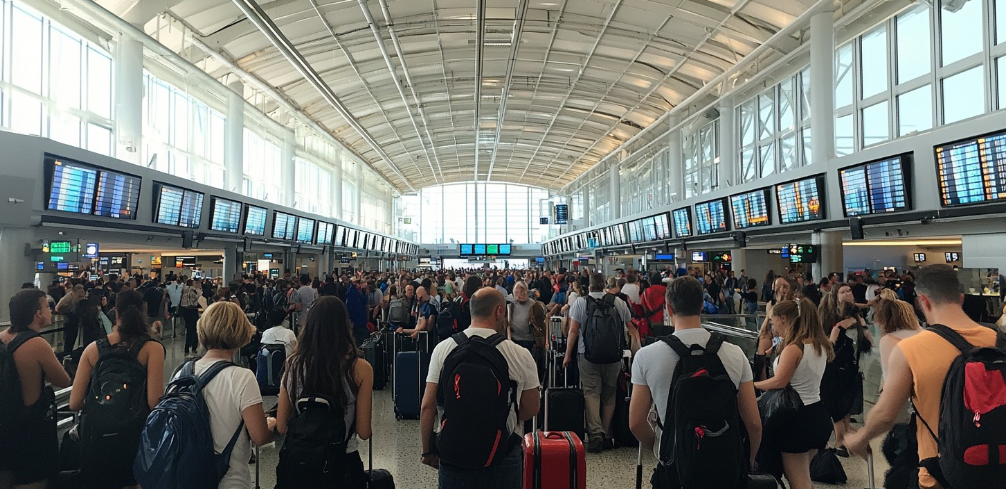LONDON, June 4, 2025 — With the peak summer travel season approaching, a wave of coordinated industrial action across Europe threatens to upend holiday plans for millions of travelers. Strikes involving transport workers in France, Italy, the UK, Belgium, the Netherlands, and Spain are poised to cause widespread disruptions across airlines, railways, ferry services, and public transport networks.
As labor disputes over wages, working conditions, and pension reforms intensify, the travel industry faces mounting pressure to mitigate what could become one of the most turbulent summer travel seasons in years.
Rail Strikes: Cross-Border Disruptions Loom
Rail services — a backbone of European travel — are set to face some of the most significant disruptions.
In France, the long-standing conflict between railway unions and the government is intensifying. Nationwide strikes are already underway, with June 4 expected to see up to 50% of long-distance services canceled. Another major strike on June 5 will involve rail workers joining wider public sector protests, effectively bringing large portions of the SNCF network to a halt.
Italy is also set for rolling walkouts throughout June, including a nationwide transport strike on June 13 affecting railways and key airports in Venice, Milan Malpensa, and Linate. Localized actions will hit additional cities throughout the month, making travel between popular destinations more unpredictable.
In Belgium and the Netherlands, rising labor tensions among rail and public sector unions threaten sudden service suspensions. While Dutch unions have not yet confirmed dates, their growing dissatisfaction raises the likelihood of full-scale walkouts in July.
Air Travel Faces Delays and Cancellations
Air travelers will also face headwinds, particularly in France and the UK.
French air-traffic control strikes, a perennial challenge during summer months, are once again causing delays and re-routed flights across the continent. Airlines like easyJet and Ryanair have activated contingency measures, but significant disruptions remain likely, especially on intra-European routes.
In the UK, industrial action is spreading. Ground staff at Glasgow and Edinburgh airports are threatening walkouts over pay disputes, while around 800 mobility assistance workers at Heathrow continue striking, creating delays for travelers needing extra services. Should negotiations fail, further escalations are expected.
Despite these headwinds, airlines are offering flexible rebooking options and encouraging passengers to monitor schedules closely. Still, as more strikes are confirmed, industry leaders warn that the scope of disruption could rival that of the post-COVID travel rebounds.
Ferry and Local Transit Strikes: Smaller Scope, Big Impact
In Italy, ferry operators have announced intermittent strikes throughout June and a significant 48-hour walkout in early July, likely to disrupt travel to and from islands such as Sicily, Sardinia, and the Aeolian archipelago.
Simultaneously, public transit systems in cities like Naples and Genoa face disruptions due to strikes by bus and metro workers. These localized actions can leave tourists stranded without viable alternatives for short-distance travel.
While the impact may seem more limited compared to air and rail strikes, these disruptions could still derail tightly planned itineraries, particularly for travelers relying on public transport in urban areas.
The Traveler’s Dilemma: Unpredictability and Uneven Protections
A key concern for travelers this summer is the lack of consistency in consumer rights. While EU regulations offer robust compensation and rebooking rights for airline passengers, protections for train and ferry users are less comprehensive.
This disparity creates confusion and frustration, especially for international travelers unfamiliar with local rules. Travel advocacy groups are calling for a more uniform set of passenger protections across all modes of transport.
Industry Response and Traveler Advice
The travel industry is scrambling to respond. Airlines are adjusting schedules and staffing to reduce last-minute cancellations. Rail operators are negotiating with unions while developing emergency timetables. Ferry companies are advising passengers to book alternate dates or seek road-based alternatives where possible.
Tourism boards and travel agencies are urging travelers to adopt a flexible mindset this summer:
- Monitor travel alerts and strike announcements.
- Build buffer time into itineraries.
- Book refundable or changeable tickets where possible.
- Have alternative routes or destinations in mind.
A Test of Resilience for European Travel
The summer of 2025 is shaping up to be a stress test for Europe’s interconnected transport infrastructure. What began as isolated labor disputes is now escalating into a continent-wide movement that threatens to disrupt the travel plans of millions.
For the travel industry, the season will highlight both vulnerabilities and opportunities — from strengthening labor relations to improving contingency planning. For travelers, flexibility, awareness, and preparation will be essential to navigating what may be one of Europe’s most chaotic summer travel seasons in recent memory.
Whether visiting the lavender fields of Provence or the canals of Amsterdam, travelers are advised to stay nimble — and stay informed.



